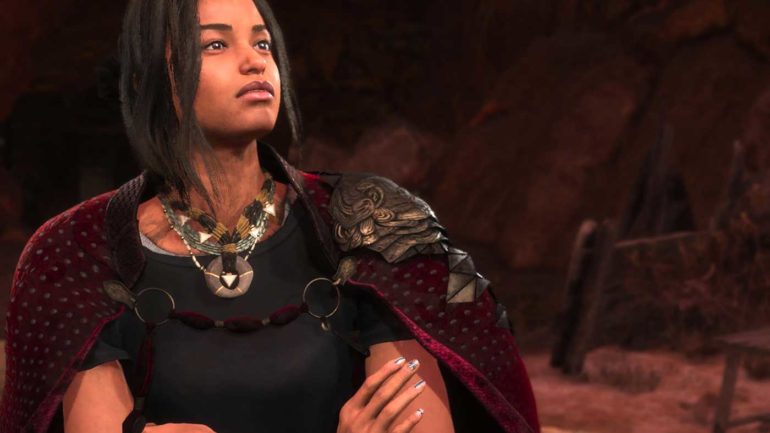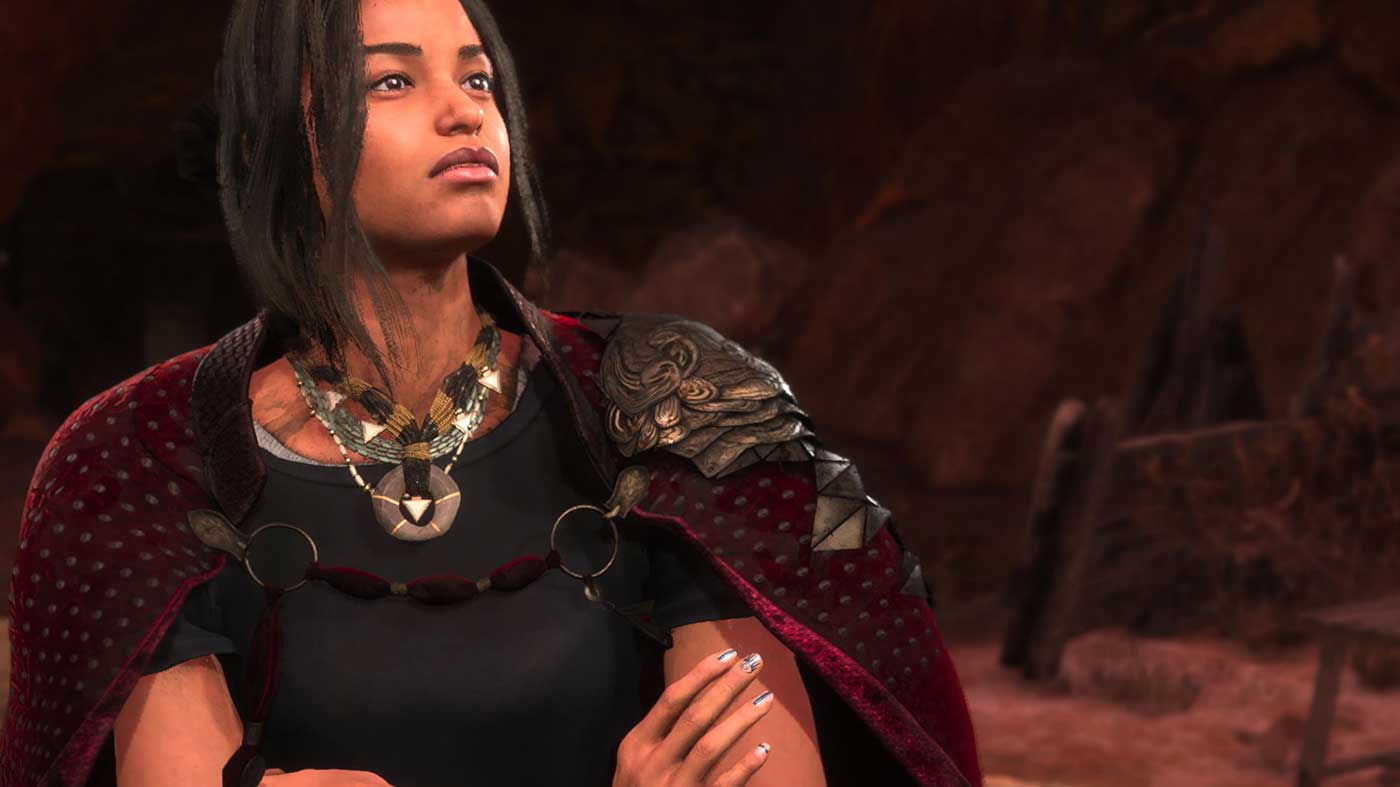Two years ago, when we first saw the PlayStation 5, we also saw Project Athia. It was a brand new game from Square Enix touted as a thrilling story-led adventure. Some thought it could be a new Final Fantasy game. Others thought it was a glorified tech demo, never to release. Now, Project Athia is Forspoken, making good on most of the promises made when it was first revealed. But with that declaration comes a few caveats. Yes, Forspoken is a story-led experience, but it’s average pacing really belies the potential of its unique and inspired combat systems.
You’re Frey Holland, an orphaned street kid whisked away from New York to a strange new world called Athia by a magical talking bracelet nicknamed Cuff. Standard stuff, I know. Frey has entered Athia in a state of turmoil – the four sorceresses (called the Tanta) ruling it have been corrupted by a mysterious presence referred to as “the break.” Frey is resistant to the break, so the people of Athia think she is the hero they need. She wants to get home. But she plays along, hoping that eventually, these two goals will converge. Of course, it’s never that simple.
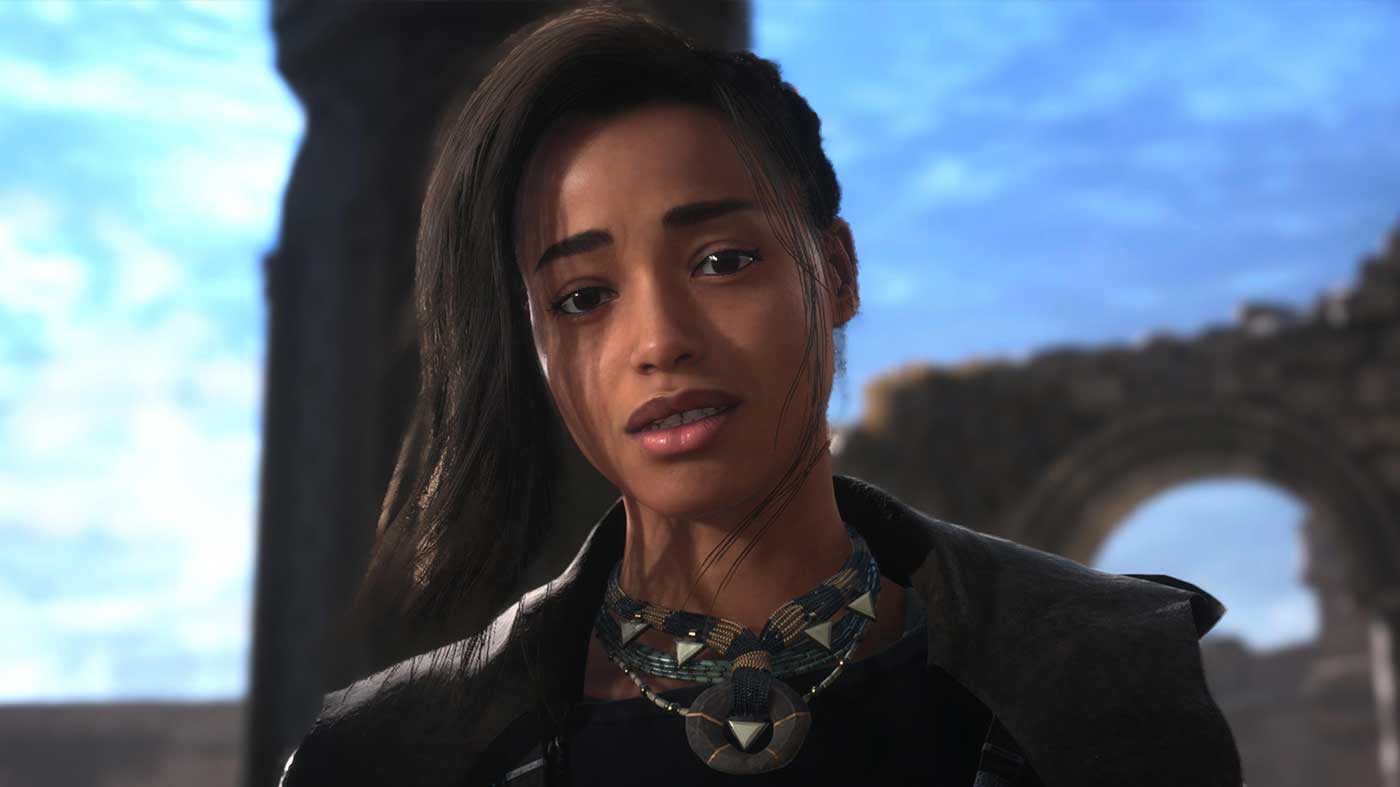
One of the most impressive aspects of Forspoken is that the world of Athia is exceptionally well developed. There’s a lot to take in here as someone who can appreciate a good amount of lore in games. A joint writing effort between Garry Whitta (Rogue One) and Amy Hennig (Uncharted), I often found myself getting lost in the game’s numerous lore drops. Such a strong sense of worldbuilding establishes history for the world of Athia, so when the inevitable revelations come across in the story, the impact is more significant.
But I wish I could sing similar praise for the characterisation of Frey herself. The way she is characterised is so haphazard. There are times when she’s a sympathetic protagonist, especially in the opening hours, but others where she is genuinely mean to other characters for no reason and subsequently unlikeable. She eventually comes around as the story closes, but during battles, she’ll throw out Marvel-esque quips in a manner that I can only describe as cringe-worthy. There’s a fine line between confident and obnoxious, and Frey crosses it regularly. On the plus side, perhaps the developers knew this, as there are options to reduce the frequency of non-essential dialogue, but it still doesn’t excuse just how asinine it can be.
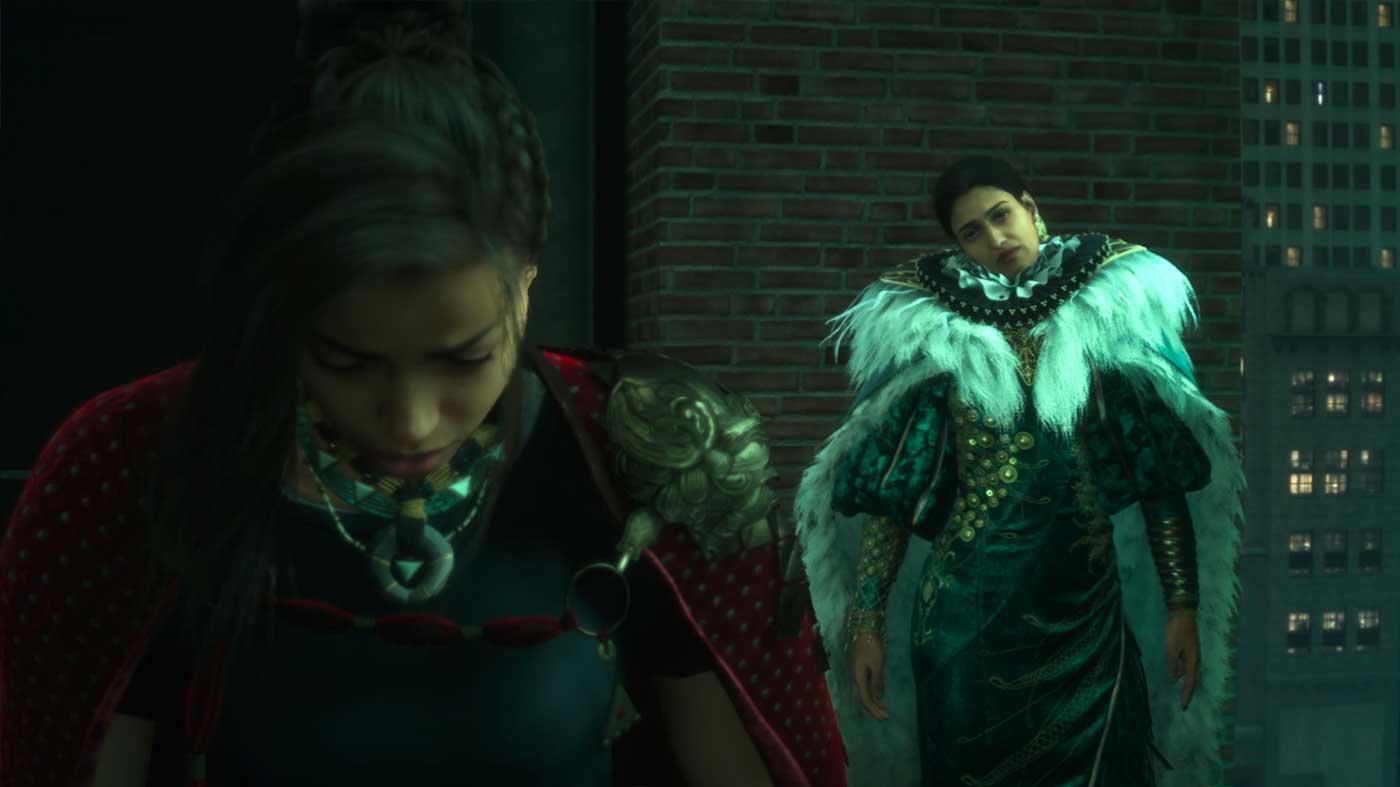
You’d be surprised to discover that I’m still keen to see another game set in this world and even more so to see Frey continue as its protagonist. Forspoken’s story comes together in such a satisfying manner that I’m almost disappointed to hear that the upcoming expansion will be a prequel rather than a sequel. Not seeing Frey or Athia again after both have been through so much would feel like a waste.
Athia is a massive open world, peppered with activities and checklists to finish. It’s a veritable playground, designed from the ground up to perfectly complement Frey’s unique abilities and how she gets around with the powers Cuff granted her. But if you’ve played any open-world game released in the past decade, you’ve probably already got a decent idea of how Forspoken is structured and where it falls flat.
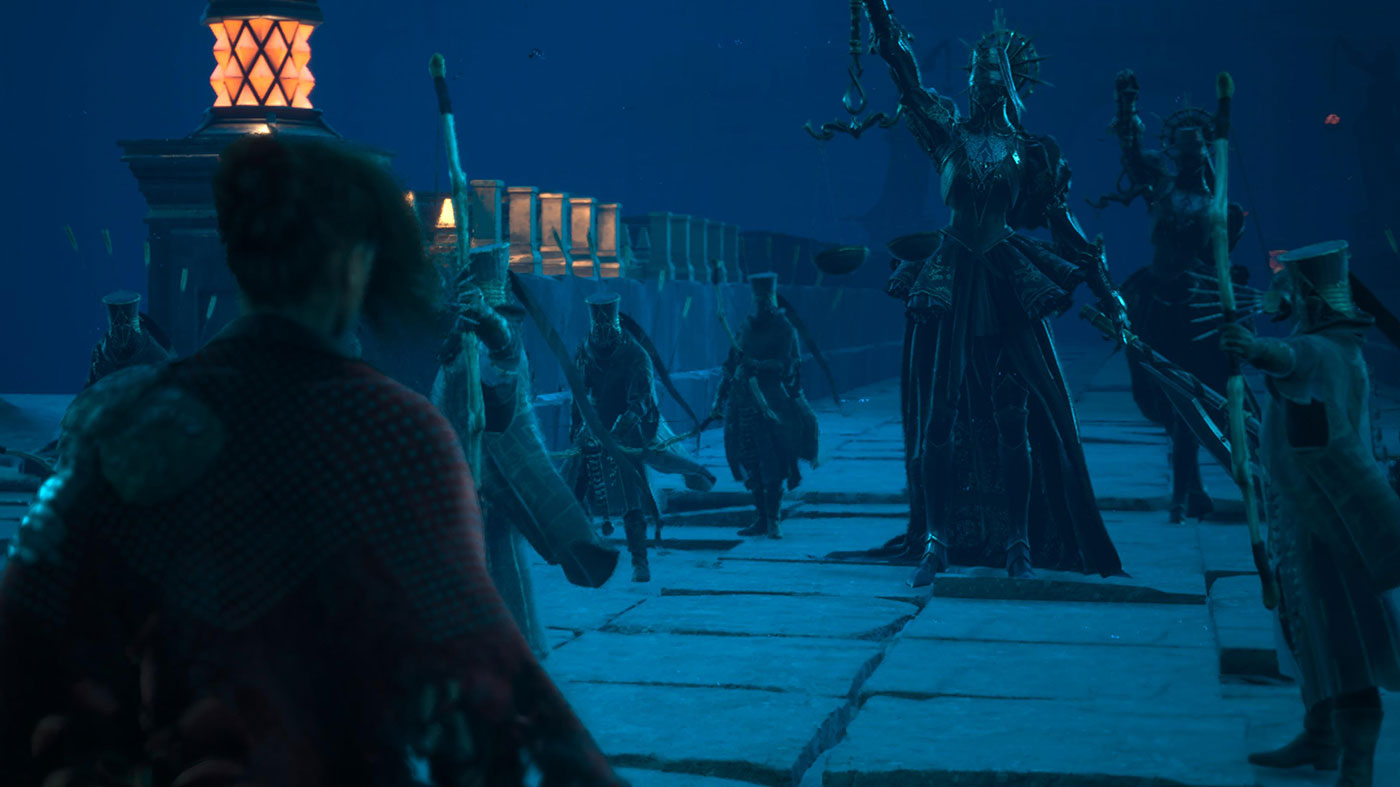
It’s a relief, then, that Forspoken nails the sense of fluidity and speed in its attempt to offer traversal mechanics like no other. With the hold of a button, Frey can zip around in a magical parkour system called “Flow” to cover a great distance in no time at all. She can evade enemies, do flashy dodges, surfs across the water, and even grapple to new heights with her magic. It’s a sense of speed and subsequent freedom unlike any other I’ve seen in a game. It’s a joy to handle and never gets old. And it’s even better to see how these mechanics feed into the combat of the game.
In combat, Frey can wield four distinct types of magic with differing styles, so any action game fan will be able to find a style to suit them. It’s a deceptively deep system that splits its spells into defense and attack. Attack magic behaves similarly to weapons in games such as Devil May Cry or Bayonetta, allowing Frey to conjure explosive rocks, fiery spears, drenching tornadoes, and area-affecting lightning attacks. Support magic buffs, debuffs, and summons assistance for Frey. There are over forty spells to get acquainted with in Forspoken, and they’re all fun to use and just as viable as each other.
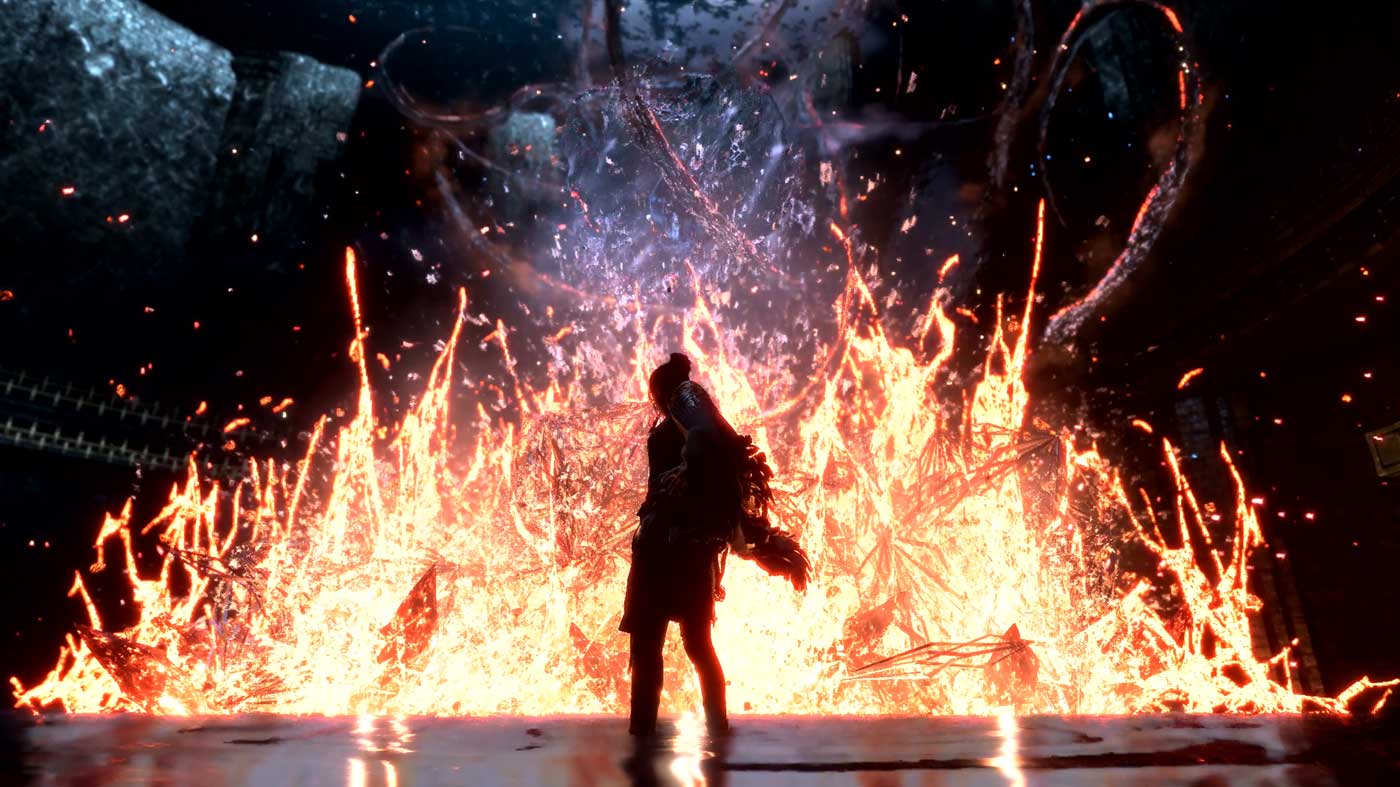
Couple these solid traversal mechanics with a robust magic system, and you’ve got a combat system in Forspoken that’s just fun. Really fun. The game throws all kinds of enemies at you, some of which have elemental weaknesses, adding an additional layer to the combat and encouraging you to change your approach. It’s a bit of a bizarre decision to relegate some boss battles behind optional side missions, which many players might not even see.
THE CHEAPEST COPY: $79 WITH FREE DELIVERY FROM AMAZON
I say this because Forspoken fills its map with hundreds of collectibles and activities to pad out the experience. I’ve alluded to this earlier in the review, and it’s just as you’d expect. Side missions are overly simplistic, rarely offering up more than a wave of enemies to defeat or an item to find. It’s one of the least compelling ways to do optional content, though I must credit Forspoken for not gating progress behind completing some of them like other games have in the past.
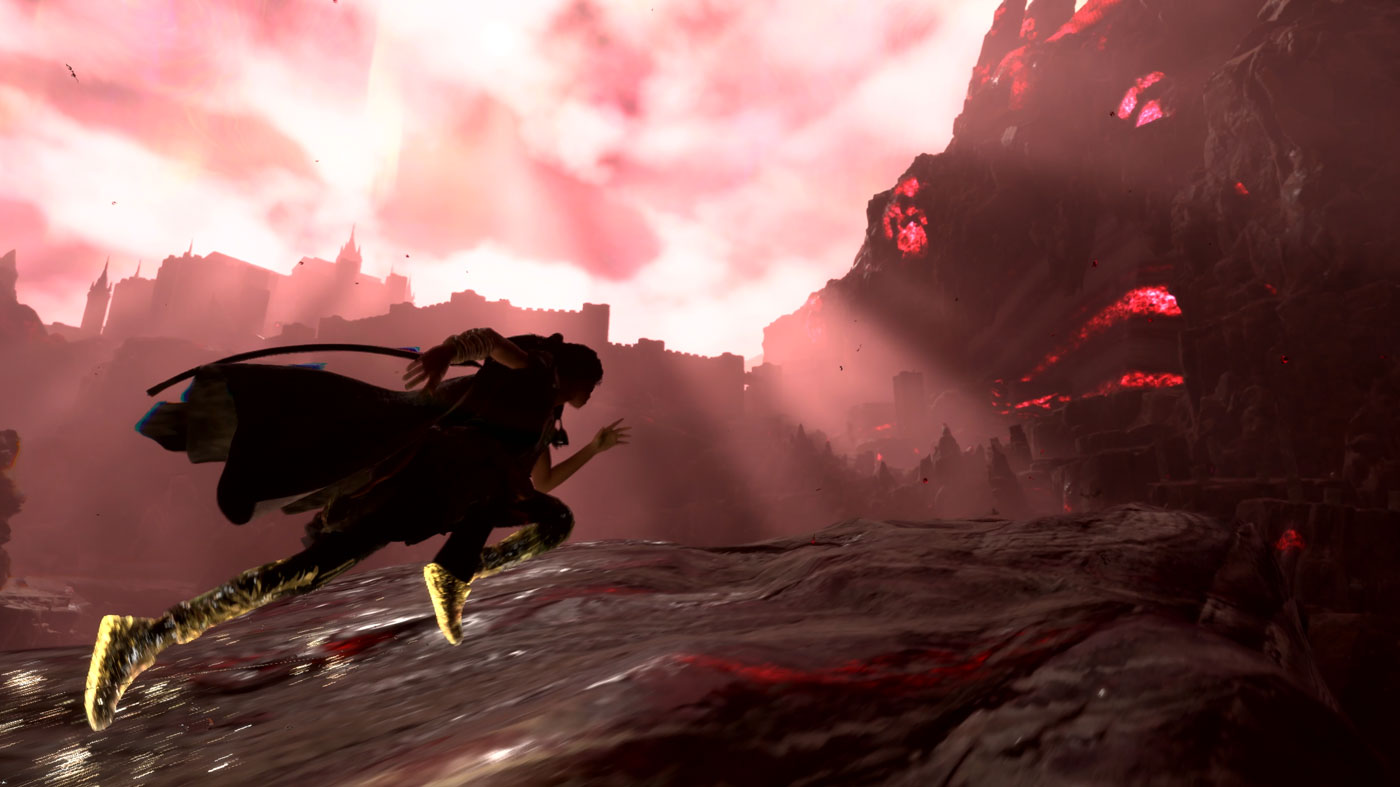
But if you stick with the game’s fifteen-hour main story, you’ll still find value in what Forspoken offers. Each boss battle with the Tanta, the villainous sorceresses, feels epic in scope and scale and tests Frey’s mettle. It’s a shame that the game is so poorly paced sometimes. The first half of the game dumps lore on you – not even through cutscenes, sometimes through mandatory lore entries – and then forces you to slow walk with people around a town before finally letting you loose to fight your first Tanta.
From that point on, the game rushes you through the rest at a breakneck pace. This is the part I liked – the game didn’t outstay its welcome and kept the momentum once it got going. It’s just questionable as to how many players will make it to this point. The opening moments are truly woeful – giving you a taste of Frey’s incredible powers but then literally and figuratively trapping you in a locale where you can’t use them. It feels needlessly long, and it wouldn’t surprise me to learn that these lore dumps were added to the game after everything else was said and done.
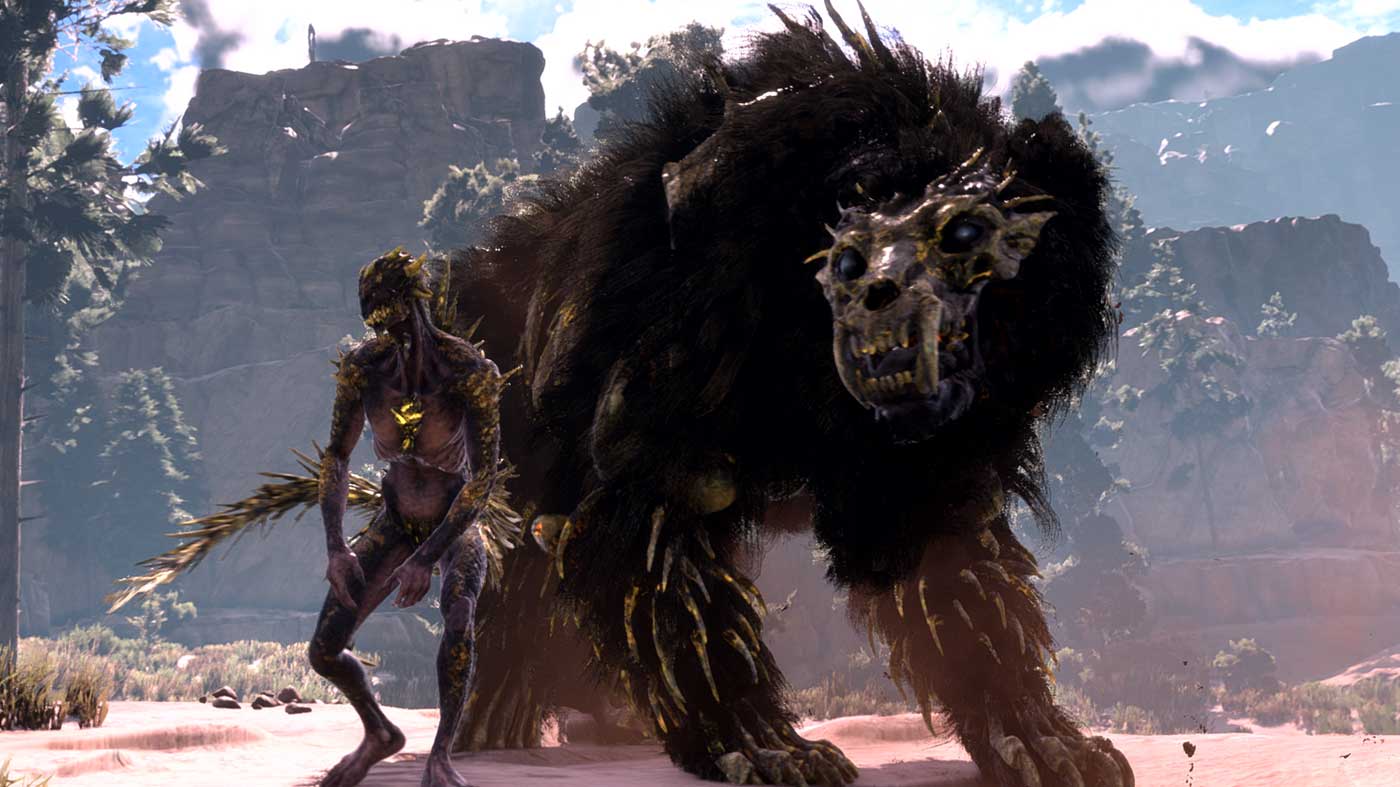
If you like to do everything in a game, though, there is a heap to do and find in the world of Athia. Completing quests unlocks cloaks, jewelry, and nail patterns that improve Frey’s stats and abilities. If you’re a crafting junkie too, there’s a heap of customising that can be done with individual equipment, like improving magic or defense. As I’ve mentioned, there’s a heap to see and do here, and you can do as much or as little as you like. But if you want to do absolutely everything, I can see players getting forty or so hours out of it. My advice? At a minimum, try a few of the dungeons. The boss battles contained within are great.
Forspoken puts its best foot forward when it comes to presentation. Everything is presented in these exotic gold-accented visuals, and the artistic direction is as strong as you’d expect from a team who has produced a Final Fantasy game. There are some awkward facial animations here and there, for sure, but it’s a fantastic-looking game. In terms of performance, the game has many resolution-first and framerate-first options, including high-framerate modes. In performance mode, I would find myself zipping around an arena that’s being showered with water, lightning, and flames all at once with little to no slowdown.
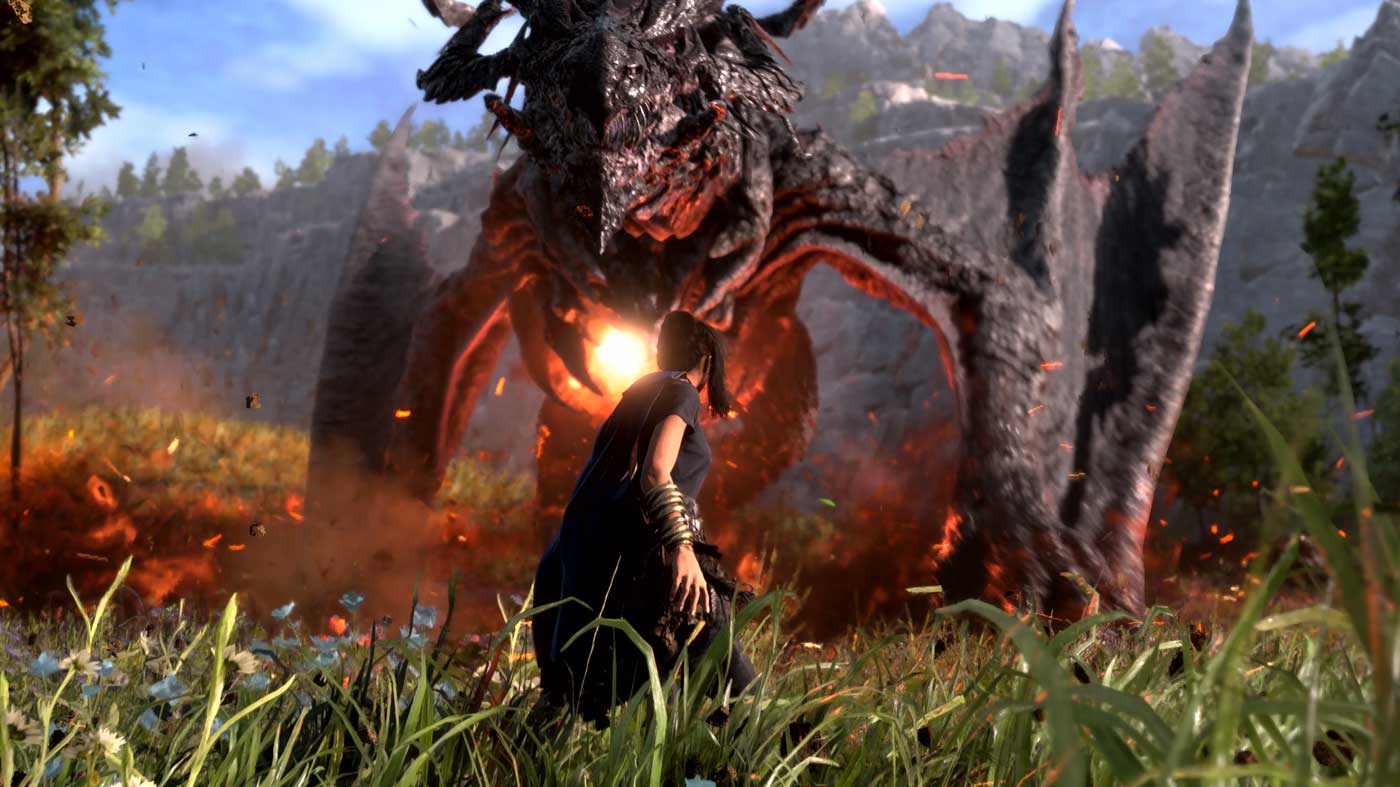
On the same token, Bear Mcreary and Garry Schyman’s original score lends dramatic bravado to the game’s battles and a sense of exotic otherworldliness when exploring Athia. It’s a great score that perfectly encapsulates the mood that Forspoken is going for and makes every moment feel uplifting and engaging.
The cast is similarly strong – Ella Balinska turns in an excellent performance as Frey, even though her moment-to-moment lines are average at times. The Tantas are brought to life with the help of some major talent in Janina Gavankar, Pollyanna Mcintosh, and Claudia Black. However, my favourite standout is the fiery archivist Johedy, played by The Greatest Showman’s Keala Settle. While the cast comprises mainly celebrities, they all do great work bringing their respective characters to life.
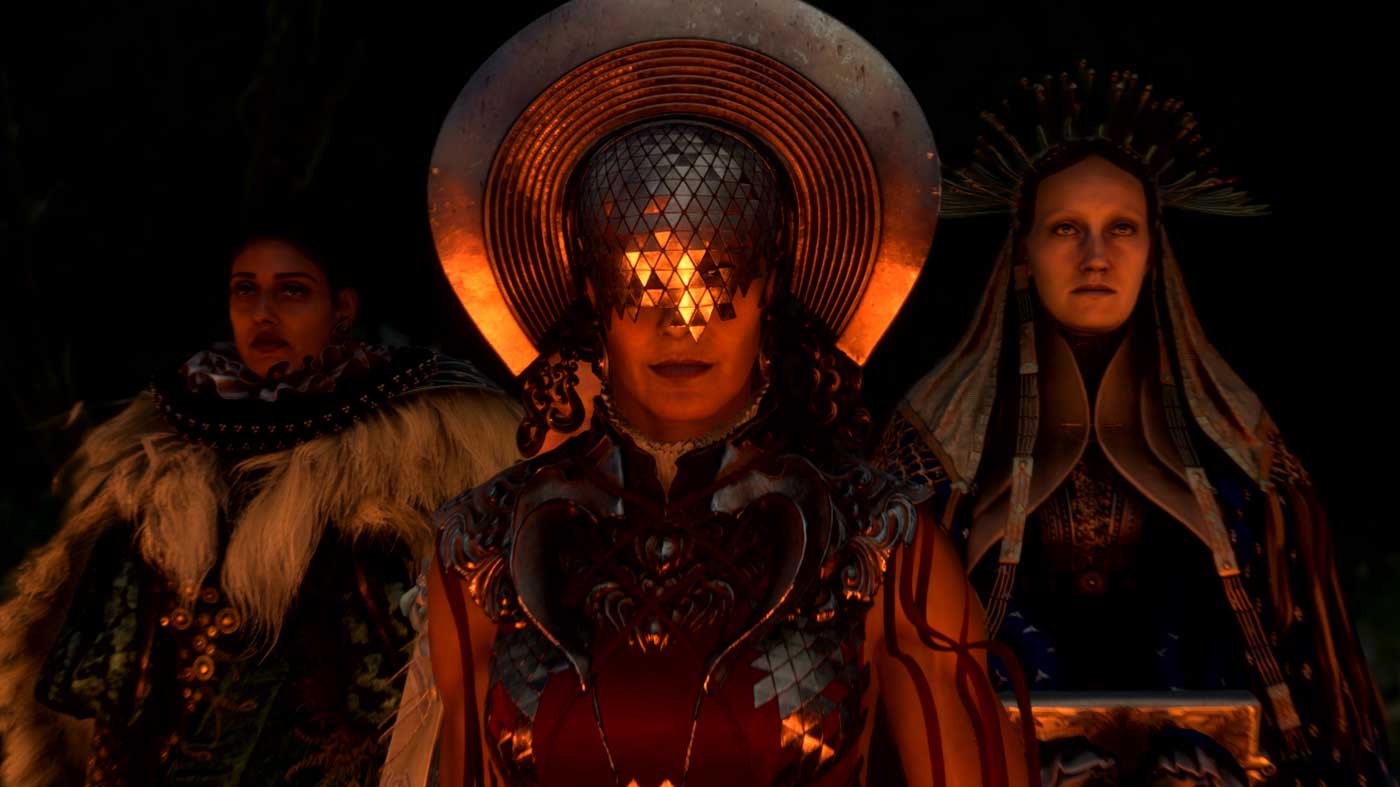
For all that’s bad about Forspoken, there’s a lot that’s good too, which I think is easy to forget. And it’s a shame because underneath the cringeworthy dialogue that Frey spouts from time to time and the done-to-death open-world design, there’s a fantastic game here with an even better premise. Forspoken is a game set in a well-developed world with some really fun and unique mechanics that I’ve never seen in other games. For that, it at least deserves some credit.


